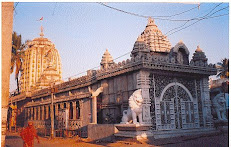BERHAMPUR: Four products of
Ganjam district - the Berhampuri patta saree, joda or silk dhoti, kewda flower
and kewda flower rooh or essence - have been registered under the Geographical
Indications (GI) of Goods (Registration and Protection) Act. Union minister of
state for commerce and industry S Jagathrakshakan
intimated Rajya Sabha member from the state Renubala Pradhan about the GI tag
for the products recently. Pradhan had urged the government to ensure GI status
for the famous Berhampuri patta (silk saree) and had written a letter to the
concerned minister regarding it. "I thanked the ministry for giving
reorganization to the Berhampur silk saree. I also thanked the officials of the
textile department and the state government for taking initiation to ensure
such a prestigious recognition for the product," Pradhan said.
GI sign is used on goods that
have a specific geographical origin and possess qualities essentially
attributed to the place of origin. It confers legal protection to the product
and prevents its unauthorized use or manufacture by others. Weavers are upbeat
about the GI registration of their product. "One will not imitate our
designs any more," said weaver T Gopi. The Berhampuri silk saree is unique
due to its typical Odissi style of weaving and kumbha, particularly phoda,
temple type design. "The zari work border design is different from
others," said a Berhampuri patta weaver. The weaving technique is said to
have originated over 200 years ago. The finely woven sarees were known to be
exported to southeast Asian and other countries through the Gopalpur port in
the days of yore. The sarees also adorn the deities of Jagannath, Balabhadra
and Subhadra at the Jagannath temple in Puri.
The kewda flower and its rooh,
produced after processing the flowers, is also unique to the region. The flower
grows in at least four coastal blocks of the district - Chhatrapur,
Rangeilunda, Ganjam and Chikiti. The kewda oil is extracted by processing the
flowers in distilleries. Around 250 processing units, locally known as bhatis,
were engaged in processing the flowers. The oil of the thorny flower is used in
preparing gutka across the country, apart from its use in the perfume industry.
After the ban on manufacture and sale of gutka in several states, including
Odisha, most of the processing units have stopped operations. "The gutka
ban has hit kewda farmers hard," said BJP yuva morcha president Bibhuti
Jena. Around 50,000 people were dependent on the kewda essence industry for
their livelihood. As many as 14 products of the state have earned the GI tag so
far. Kotapada handloom fabrics, Odisha ikta, Konark stone carving, pattachitra,
Pipili applique, Khandua saree and fabric, Gopalpur tussar, Dhalapathara Panda
and fabric, Sambalapuri bandh saree and fabric, Bomkai saree and fabric and
Habaspuri saree and fabric have got the recognition apart from the latest
additions.
Source: Times of India


















.jpg)


















































Finally the much awaited commendation embraced to the deserved ones!
ReplyDelete